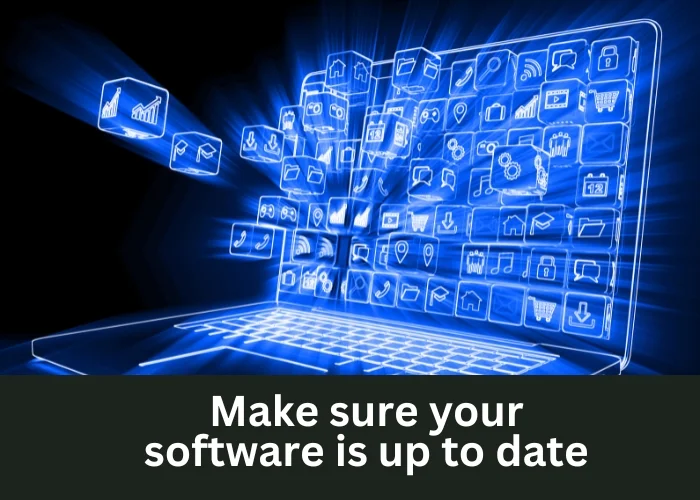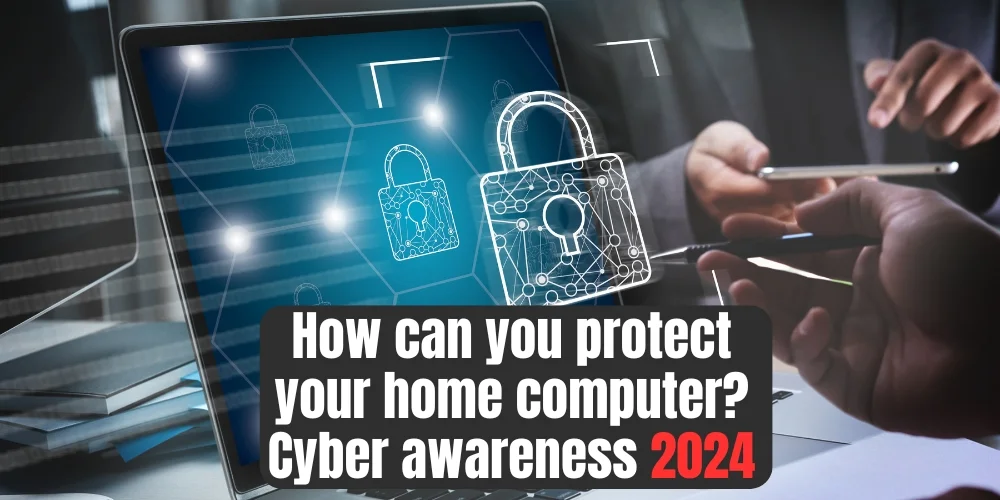Protecting your home computer in this increasingly digital environment is more crucial than ever. Cyber dangers are constantly changing, becoming more complex and challenging to identify. Ensure your computer is secure whether you’re working from home, buying online, or browsing the web. Here are some vital pointers for improving your home computer’s security and cyber awareness in 2024. Let’s discuss how to protect your home computer with cyber awareness in 2024.
Which subjects will be covered in security awareness training the most in 2024?
The following is usecure’s list of the most relevant subjects for employee cyber security awareness training in 2024:
Attacks by Phishing
In 2022, Slashnext performed a report.
Phishing assaults increased dramatically in the first quarter of 2022. According to CheckPoint, a cybersecurity vendor, phishing attacks imitating professional social networking sites accounted for more than half (52%) of all attempts attempted worldwide in the first quarter of 2022. Comparing this to Q4 2021, the previous quarter, when LinkedIn was the sixth most impersonated brand, shows a 44% increase.
Disposable Media
Detachable media is another issue related to security awareness that businesses employ regularly. The portable storage medium known as removable media enables users to copy data to one device, remove it from another, and vice versa. Malware-laden USB devices may be left for end users to discover when they plug them into their devices.
Physical Safety
You should discard your passwords if you’re one of those who constantly keep them on sticky notes on your desk. The integrity of your company’s security system depends on protecting crucial physical documents, even if many attacks are likely to occur through digital means.
Make sure your software is up to date.

Your first line of protection against online attacks is routine program updates. Software makers regularly release updates to address security flaws and enhance functionality.
Operating System: Whether you use Windows, macOS, or Linux, always apply the latest updates to your operating system.
Applications: Make sure every application on your computer, such as your web browser and office suite, is current.
Security Software: To guard against the newest threats, make sure your antivirus and anti-malware software are up to date.
Make Use of Strong Passwords
A significant security risk is weak passwords. Create a robust and one-of-a-kind password for each account and device you use.
Complexity of Password: Combine capital and lowercase letters, digits, and special characters.
Password Manager: Using a password manager to create and safely store complicated passwords.
Turn on two-factor authentication (2FA) whenever you can to add an extra degree of protection.
Set Up Trustworthy Security Programmes

Invest in a complete security suite that provides additional features than antivirus defense. Guards against viruses, malware, and other harmful software with antivirus and anti-malware software.
Firewall: Keeps an eye on all incoming and outgoing network traffic and stops any questionable behavior.
Internet Security Suite: Many suites have extra features like parental controls, phishing prevention, and safe online banking.
Use caution when opening attachments and emails.
One famous avenue for cyberattacks like malware delivery and phishing is email.
Avert Doubtful Emails: Refrain from clicking on attachments or links in emails you receive from senders you are not familiar with.
Verify Links: Before clicking on a link, hover over it to ensure it’s legitimate.
Scan Attachments: Scan email attachments with your security program before opening them.
Protect Your Wireless Network
The entrance to your home internet is via your Wi-Fi network. It would help if you secured it. It’s it.
Modify Default Settings: Modify your router’s default password and SSID (network name).
Use WPA3, the most recent and safe Wi-Fi encryption technology.
Guest Network: To keep your primary network safe, set up a distinct network just for guests.
Consistently Back Up Your Data
Maintaining regular backups helps to protect your data in the event of a hardware malfunction or cyberattack.
Automated Backups: Regularly backup your critical files using automated backup programs.
Cloud and Local Backups: For redundancy, store backups locally (on external hard drives, for example) and on the cloud.
Encrypt Backups: To prevent unwanted data access, ensure your backups are encrypted.
Educate your family as well as yourself.
An effective tool in cybersecurity is awareness.
Keep Up: Stay informed about the most recent developments and risks in cybersecurity.
Safe Browsing Practices: Inform your family about the risks of downloading unidentified software and safe browsing practices.
Cybersecurity Training: To improve your cybersecurity understanding, consider enrolling in online classes or workshops.
For Added Security, Use VPNs
Your internet connection is encrypted via a Virtual Private Network (VPN), adding more protection and privacy.
Public Wi-Fi: To safeguard your information from possible eavesdroppers, always use a VPN when using public Wi-Fi.
Home Use: You may increase security and privacy at home by using a VPN.
Keep an eye on your devices and accounts.

Frequent observation can aid in the early detection of unexpected activity.
Account Activity: Monitor any unauthorized transactions or changes to your bank and online accounts regularly.
Device Health: Pay attention to how your computer runs and search for indications of malware, such as sluggishness, unexpected pop-ups, or unapproved program installations.
Put in Place Parental Controls
You must monitor and limit their internet use to keep your kids safe from online dangers.
Parental Control Software: Set screen time limits and prohibit offensive content with this software.
Education: Ensure your kids understand the value of keeping sensitive information private online.
Cloud Defence
The way that data is accessed and kept in enterprises has been changed by cloud computing. These digital apps are revolutionizing business, but since a lot of personal information is being kept offsite, there is a chance of significant hacks. While many large corporations focus on data security, cloud storage can be a far safer and more affordable option for keeping company data if you select the correct cloud service provider.
Safety at Home
Sadly, the danger posed by dishonest people never goes away when you quit your job. While allowing employees to use their own devices is a terrific way for businesses to save costs and promote flexibility in the workplace, there are also drawbacks. Applications that are unintentionally downloaded with malware on personal devices may jeopardize the security of the company’s network if, for instance, login credentials are compromised.
In summary
In 2024, safeguarding your home computer necessitates a thorough and aggressive strategy. You may significantly lower the danger of cyberattacks by installing reputable security software, using strong passwords, keeping your software up to date, and teaching your family and yourself about cyber threats. Recall that maintaining your digital life depends on being watchful, as cybersecurity is a continuous effort.

